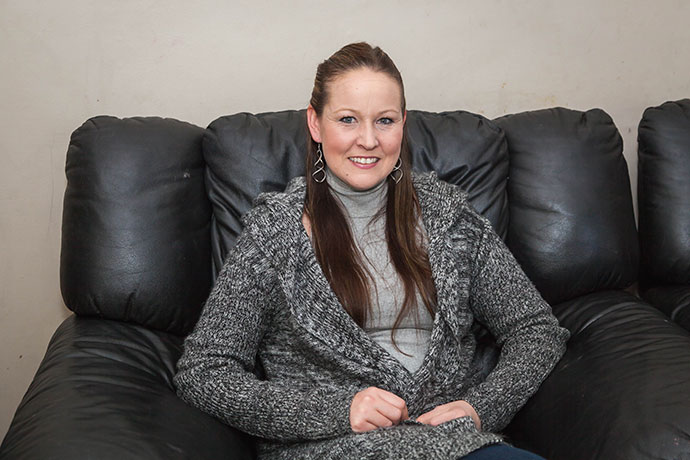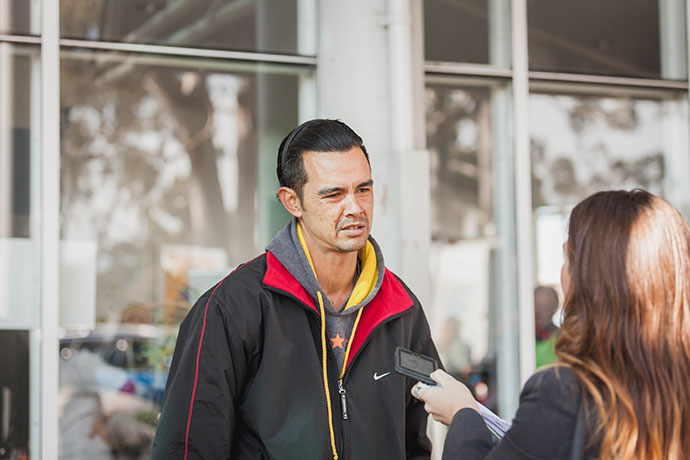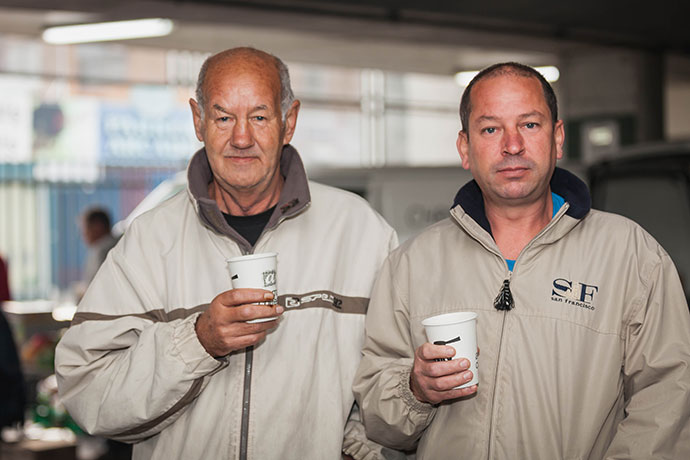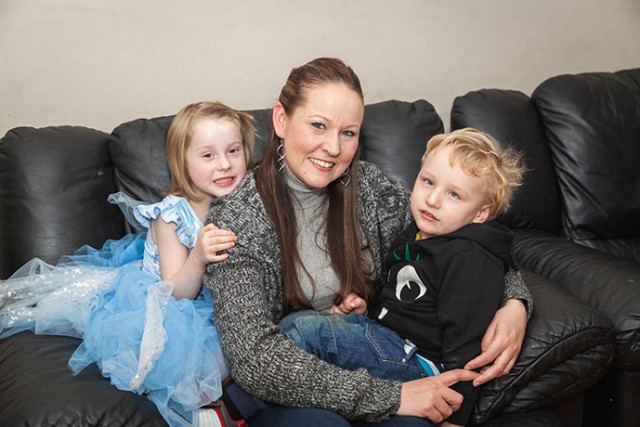Homelessness is a national issue that is often swept aside, especially in cities like Penrith, where there is a strong business community and large family focus.
However, the last census data indicated that in the Nepean / Blue Mountains
areas, there were hundreds of people living as ‘rough sleepers’ on the street, or staying between people’s homes as ‘couch sleepers’.
Furthermore, almost a third of households in the region were under financial stress, and at risk of homelessness. Despite efforts from many dedicated local and national organisations, homelessness has not been overcome, and people are still living under these conditions.
These are the untold stories of Penrith’s homelessness crisis…
AMY’S STORY
Amy is living in a private rental property with four of her seven children, and has sought assistance from housing services to help her move to a home that is accessible for her three-year-old, wheelchair bound son.
The first time Amy used housing services from Wentworth Community Housing (WCH) was five years ago, after being left homeless as a ‘couch sleeper’, when her partner of 10 years had an affair and kicked her out, keeping the three children they had together.
“I was homeless for a year and a half before I knew anything about housing and was sleeping at friends’ houses or wherever I could,” she said.
“I wouldn’t see my kids for a very long time, but my eldest daughter came with me because she was from my very first relationship.”

Six months after Amy connected with WCH, she found a private rental property.
But a year and a half ago, after another tumultuous relationship that brought three more children, things got hard with her son and Amy began to struggle.
“My son was diagnosed with a terminal illness at four-months-old, and they told me he’d only live to be four-years-old,” she said.
“I fell behind in rent because we spent a lot of time in the children’s hospital. You’ve got to weigh up your priorities; rent needs to be paid, but when it came to medication, he had to have it.
“WCH helped me out with some funding to fix up my rent to keep us in a home.”
When her son got his wheelchair, Amy reapproached WCH for more help, and they agreed to subsidise her rent to move her into a home with better disabled access.
As a mother in financial hardship, she said it was stressful because there is no room for error. Her future remains uncertain and on shaky ground.
“You’re always worried you’re going to end up in that situation again where you’re on the streets with children,” she said.
Amy said as hard as it was homeless, the future of her children kept her going.
“There is a future, and every day is a day closer to your life getting better,” she said.
ANTHONY’S STORY
Anthony has been living in his car for two years, and plays it down like it’s just a part of life.
“I just lay my seats back for a bed,” he said.
“You get used to it after a while, but the first six months is probably the hardest. After that you get into the drift of things and it’s just like a normal life.
“I go to all the food services, and for showers you just go to the tennis courts or the pool, you make do.”
Anthony is considered a ‘car sleeper’, parking his car in different locations around the city when he gets told to move along by police.
“In six months I got raided about 60 times by the police. The car that I’m living in now was my ex’s, but she was an ice addict so I’m pretty sure she was doing ‘runs’ in it,” he said.
After working for 13 years, Anthony lost his job at a local Woolworths and found it hard to find work again.
“I only know how to stack shelves so I’d have to start from the bottom again,” he said.
After two family homes broke down, Anthony has lost the motivation to rebuild another, and on a government allowance, said it’s hardly enough money to pick himself up again.
“I’ve already built up homes with two partners and lost everything so why do it again?” he said.

“I get $400 a fortnight but it’s hardly enough to eat after you put petrol in your car and do your washing – two loads to wash and dry is almost $30.
“In another month I can withdraw from my superannuation and see what I can do.”
Anthony said he is not on any drugs, and has even given up cigarettes, but feels this pushes him down the priority list for housing.
His future is wildly uncertain.
DAVID AND ALAN’S STORY
David, 66, and his son Alan, 44, became ‘rough sleepers’ in October last year, living under the Windsor Bridge for eight weeks.
“It was terrible. It actually was cold at times, and when it was warm there were millions of mosquitos. When it rained it came in under the bridge, and it was noisy with all the traffic going over the bridge all night,” David said.
Eventually, David and Alan carried a mattress across the bridge to get them off the cold ground.
“I found an old foam mattress we slept on from a rubbish tip and a couple of old blankets, that’s all we had there,” he said.

To eat, they would walk to a weekday community kitchen, and on Saturday and Sunday nights, there were meals on the other side of the bridge – that’s where they got connected with Wentworth Community Housing (WCH).
“WCH put us in temporary accommodation in South Penrith – we got the place on Christmas Eve,” he said.
“We went there with nothing, just a swag, and when we left thee months later, we had a houseful of furniture.
“WCH found us a private rental, and it actually wasn’t too hard because the real estate wanted someone in the house within days, and we were willing.”
But David said unless you are proactive at getting yourself out of homelessness, it’s hard to escape the vortex.
“They need to get off their backsides and do something. They’ve got to want to do it, my son and I didn’t want to be there, we were getting sick, we needed a place,” he said.
Alan said most homeless people they know don’t really want houses, and that they aren’t willing to get one between several of them.
“What they want to do is be homeless and spend their money on alcohol, drugs and gambling,” he said.
– Dale Drinkwater


